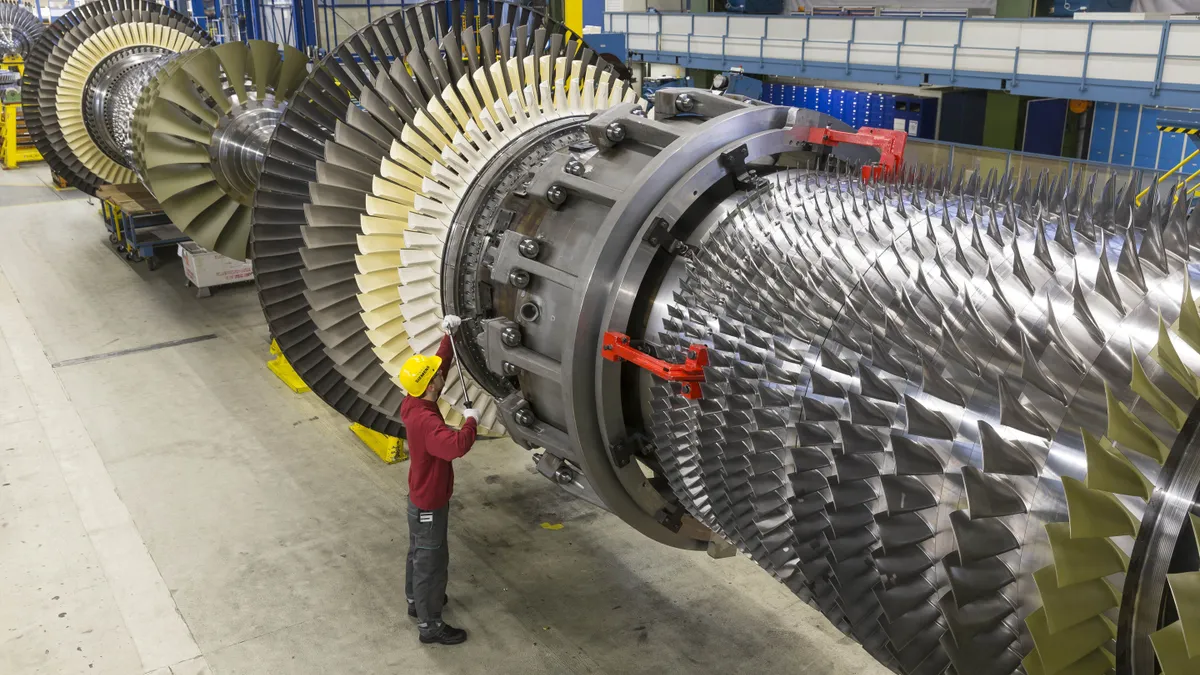Dive Brief:
- Siemens is reportedly considering the sale of its ailing gas turbine production business, largely a result of falling demand as renewable energy is increasingly chosen to replace retiring coal plants. Internal company memos, however, contradict such reports.
- In November 2017, Siemens announced it would cut 6,900 jobs in its power and fossil fuel division in response to falling worldwide demand for large gas turbines. General Electric made a similar decision a month later, announcing the loss of 12,000 positions in its power division.
- According to Rocky Mountain Institute, about half of existing thermal generation plants in the United States will retire by 2030. The group urged a hard look at clean energy portfolios to replace the capacity, warning a reflexive shift towards gas-fired power could cost consumers $500 billion.
Dive Insight:
The possible sale of Siemens' turbine business was first reported by Bloomberg, but since then, the company has pushed back. An internal memo on Friday told staff the company remains "committed" to the business unit, though company leadership is reportedly serious about a possible sale, Bloomberg also reported.
Bloomberg noted the company's share price jumped about 3% last week when the possibility of a sale was reported, and fell more than 1% after the company's internal promise to remain in the power business came to light. Earlier this year, Siemens CEO Joe Kaeser told the Wall Street Journal, "I think that the whole industry has significantly been underestimating the rise of renewable energy."
Roughly half of the job cuts announced last November will be in Germany; job cuts in the United States could reach 1,800 by 2020. Global production capacity for large gas turbines stands at around 400 units, but only about 120 were sold last year.
"The power generation industry is experiencing disruption of unprecedented scope and speed," Lisa Davis, member of the managing board of Siemens, said in a November statement. "With their innovative strength and rapidly expanding generation capacity, renewables are putting other forms of power generation under increasing pressure."
However, Davis also authored the internal memo pushing back on sale rumors. "There is no truth to the rumors. Siemens is committed to the power generation business for the long term! ... And of course this is also true for our large gas turbines," she wrote, according to Bloomberg.
RMI's data shows roughly 500 GW of thermal power (gas, coal and nuclear), will need to be replaced by 2030.
Generators "may be committing their customers and investors to as much as $1 trillion in future investment and fuel costs through 2030 as they rush to build new gas-fired power plants," the May report warned. "Yet advances in renewable energy and distributed energy resources offer lower rates and emissions-free energy while delivering all the grid reliability services that new power plants can."















